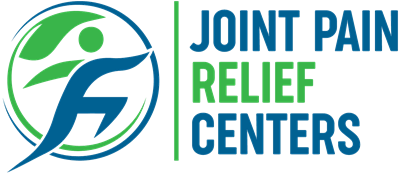Personal Injury
In personal injury cases, securing the maximum possible settlement from an insurance company hinges critically on thorough and accurate medical documentation. This documentation serves as the bedrock of any claim, detailing the extent of injuries, the treatments undergone, and the projected needs for future care. Here’s why detailed medical records are indispensable when aiming to maximize a settlement:
- Establishing the link between the incident and the injuries: Medical records are pivotal in demonstrating that the injuries sustained are directly related to the accident. Insurance companies scrutinize claims to determine the cause of injuries and differentiate pre-existing conditions from those caused by the incident. Immediate and consistent medical documentation post-accident creates a timeline that is hard to refute, strengthening the causality argument.
- Detailing the extent of injuries: Comprehensive medical records provide a clear picture of the injuries. They include initial assessments, diagnostic tests (like X-rays, MRIs, and CT scans), and medical opinions, all of which quantify and qualify the physical damage incurred. Detailed descriptions of physical pain and limitations in these documents are crucial for insurance companies and courts to understand the severity of the situation.
- Supporting the treatment plan: Medical documentation outlines the treatment protocol prescribed by healthcare professionals, including surgeries, medications, therapies, and follow-up care. This not only justifies the medical expenses already incurred but also helps in establishing the necessity for ongoing or future medical interventions. Without this, insurers may be skeptical about the need for certain treatments, which could potentially lower the settlement offer.
- Justifying the economic damages: Settlements often include compensation for direct economic damages such as medical expenses and lost wages. Detailed and itemized medical bills link specific costs to the injury, making it easier to claim these expenses. Documentation of the treatment duration and any time off work due to the injury also substantiate claims for lost earnings, which can be a significant portion of the settlement.
- Calculating non-economic damages: Injuries can lead to non-economic damages, which include pain and suffering, emotional distress, and loss of enjoyment of life. While these are inherently subjective, medical records that describe ongoing pain, psychological assessments, and the impact on daily life provide tangible evidence that can be used to quantify these damages. Accurate documentation allows legal representatives to argue more effectively for higher compensation for these less tangible impacts.
- Creating leverage during negotiations: Armed with exhaustive and organized medical documentation, plaintiffs and their attorneys are in a stronger position to negotiate settlements. Insurance companies are more likely to offer a fair settlement if they see a well-documented case backed by solid evidence that would likely hold up in court. The alternative is a prolonged legal battle and is often less appealing to insurers if the evidence against them is robust.
- Protecting against future complications: Sometimes, injury-related complications or issues arise after the settlement has been agreed upon. If the initial medical documentation is comprehensive, it might provide options to revisit the settlement terms, especially if the complications are directly tied to the original injury.
In conclusion, meticulous medical documentation in a personal injury case is not just a procedural necessity; it is strategic, serving multiple critical functions from proving causality to justifying treatment, expenses, and compensation for both economic and non-economic damages. This is why anyone involved in a personal injury case should prioritize and ensure the accuracy and completeness of their medical records from the outset.
Joint Pain Relief Center is accepting new patients.
To schedule a visit, CALL NOW: 407-786-9900.
LOCATION
Joint Pain Relief Center
123 Main St.
Orlando, FL 32827
Phone: 407-786-9900
OFFICE HOURS
Monday
9:00 am - 4:30 pm
Tuesday
9:00 am - 4:30 pm
Wednesday
9:00 am - 4:30 pm
Thursday
9:00 am - 4:30 pm
Friday
By Appointment
Saturday
Closed
Sunday
Closed
GET IN TOUCH

